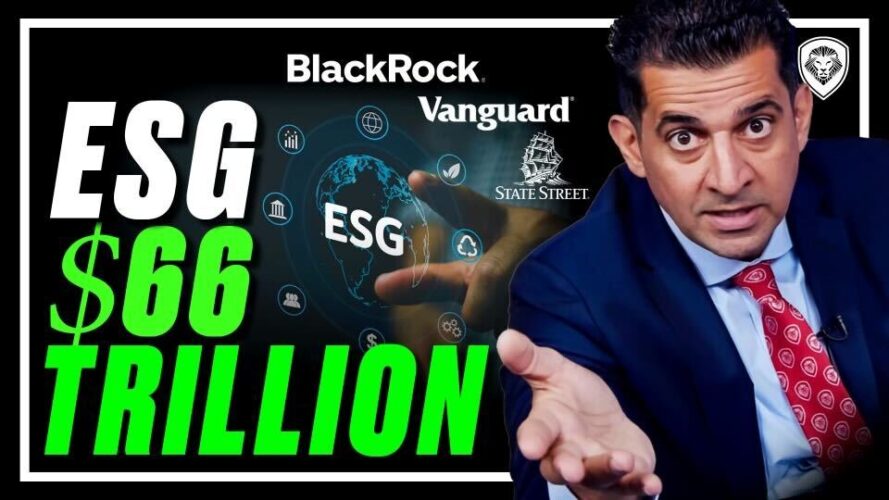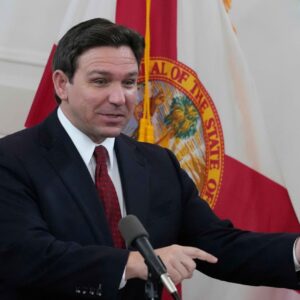So, what is ESG anyway?
An ESG score is a measure of how well a company addresses risks with respect to environmental, social, and governance issues in its day-to-day work and operations. These risks include matters like carbon emissions, employee safety, and board diversity.
The system uses analysts and algorithms to calculate environmental, social, and governance ratings that are then combined into a score.
Where Did The ESG Idea Come From?
In 2006, the United Nations enacted the Principles for Responsible Investment (PRI).
PRI is a set of six principles that outline how investors can integrate environmental, social, and governance (ESG) factors into their investment decisions.
The PRI has been signed by over 3,000 investors, representing over $40 trillion in assets under management.
Why so much compliance?
The United Nations has powers to influence the flow of capital and set international law …
Legislative powers: The U.N. can pass resolutions that impose sanctions on or invest in sustainable development projects.
Judicial powers: The International Court of Justice (ICJ), can impact the rights of investors and the ability of countries to regulate the flow of capital.
Financial powers: The U.N. has influence over the World Bank and the International Monetary Fund, which have the power to lend money to countries and to influence the flow of capital.
The U.N. has several ways to influence these institutions, including …
- The U.N. General Assembly and the Security Council can pass resolutions that are binding on the World Bank and the IMF.
- The U.N. can appoint representatives to the boards of the World Bank and the IMF.
- The U.N. can provide funding to the World Bank and the IMF.
- The U.N. can issue reports and studies that make recommendations to the World Bank and the IMF.
Who controls the U.N.?
- NGOs have the most significant influence on the U.N.’s decision-making process.
- Through lobbying, advocacy, and partnerships, NGOs have massive influence over the U.N.’s agenda.
- They have also played a significant role in mobilizing public opinion on U.N.-related issues.
The NGO that encouraged the U.N. to enact the Principles for Responsible Investment (PRI) was the United Nations Environment Program Finance Initiative (UNEP FI). UNEP FI is a partnership between the U.N. Environment Program and the financial community.
Some of the largest NGO’s today include:
- Amnesty International — (Revenue was $392 million last year.)
- Doctors without Borders — ($2 Billion Annual Revenue)
- World Wildlife Fund — (Revenue: $256,825,626)
- Oxfam — ($118.6 million)
- Save the Children — (revenue is $949.9 million)
In 2020 Larry Fink, declared that a fundamental reshaping of global capitalism was underway and that his firm would help lead it by making it easier to invest in companies with favorable environmental and social practices.
From Harvard Business Review:
- One of either Blackrock, Vanguard, or State Street is the largest shareholder in 88% of S&P 500 companies. They are the three largest owners of most DOW 30 companies. Overall, institutional investors (which may offer both active and passive funds) own 80% of all stock in the S&P 500.
- “The Big Three” collectively held a median stake of 21.9% in S&P 500 companies, which represented a proportion of 24.9% of the votes cast at the annual meetings of those companies.
- These three firms control roughly 80% out of about $4 trillion in total ETF assets.
There are significant situations in which index fund votes could determine whether a vote passes or not, both for proxy contests and for environmental, social, and governance (“ESG”) matters. And even where votes are not close, the outcome of votes can play an important part in influencing the behavior of corporate managers.
In December 2021, Bloomberg found that only one of 155 ESG upgrades of S&P 500 companies cited an actual cut in emissions as a factor.
Now ask yourself, does this sound like something being done for the greater good or as a massive control mechanism? You be the judge!


















Add comment